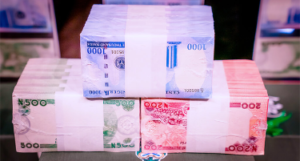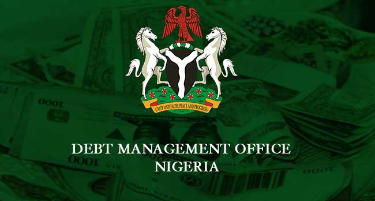Nigeria’s total public debt has now surged to ₦121.67 trillion ($91.46 billion), according to the latest report from the Debt Management Office (DMO) released on Thursday. This marks a significant increase from the ₦97.34 trillion ($108.23 billion) reported in December 2023, reflecting a steep rise of ₦24.33 trillion within just three months.
As of March 31, 2024, Nigeria’s combined domestic and external debts stood at this staggering figure, encompassing borrowings by both the Federal Government and the 36 state governments, as well as the Federal Capital Territory (FCT). Breaking down the numbers, the DMO reported that the country’s total domestic debt was ₦65.65 trillion ($46.29 billion), while the total external debt was ₦56.02 trillion ($42.12 billion).
This sharp increase in debt is attributed largely to new borrowing required to partially finance the 2024 budget deficit. Additionally, a significant portion of the ₦7.3 trillion Ways and Means Advances at the Central Bank of Nigeria was securitized, contributing to the overall rise in debt. The DMO noted, “Whilst borrowing, as provided in the 2024 Appropriation Act, will continue, we expect improvements in the Government’s Revenue to enhance debt sustainability.”
 President Bola Tinubu, addressing the nation on May 29, 2024, indicated his intention to present a supplementary budget to the National Assembly soon, reflecting ongoing fiscal adjustments. This comes after he signed the ₦28.7 trillion 2024 Appropriation Bill into law on January 1, 2024. The 2024 budget, dubbed the ‘Budget of Renewed Hope,’ was ₦1.2 trillion higher than what was initially proposed in November 2023. It included optimistic economic projections, such as an oil price benchmark of $77.96 per barrel and a daily oil production estimate of 1.78 million barrels.
President Bola Tinubu, addressing the nation on May 29, 2024, indicated his intention to present a supplementary budget to the National Assembly soon, reflecting ongoing fiscal adjustments. This comes after he signed the ₦28.7 trillion 2024 Appropriation Bill into law on January 1, 2024. The 2024 budget, dubbed the ‘Budget of Renewed Hope,’ was ₦1.2 trillion higher than what was initially proposed in November 2023. It included optimistic economic projections, such as an oil price benchmark of $77.96 per barrel and a daily oil production estimate of 1.78 million barrels.
However, the economic reality has diverged significantly from these projections. The naira, which was pegged at ₦750/$1 in the budget, plummeted to nearly ₦2,000/$1 by February 2024, following the unification of the foreign exchange windows. This sharp depreciation has continued, with the currency currently trading at around ₦1,500/$1. The rapid decline of the naira against the US dollar has added to the economic strain, complicating the fiscal landscape and impacting debt servicing costs.
The substantial increase in public debt highlights the challenges Nigeria faces in managing its fiscal policy amid economic uncertainties. The DMO has underscored the need for improvements in government revenue to ensure debt sustainability, a sentiment echoed by economic analysts who warn of the potential long-term impacts of rising debt levels.
Moreover, the securitization of the Ways and Means Advances signifies an ongoing reliance on borrowing to bridge budget gaps, a strategy that could pose risks if not matched with corresponding revenue growth. The government’s commitment to enhancing revenue collection and implementing fiscal reforms will be crucial in addressing these challenges.
The coming months will be critical as the government navigates these fiscal pressures while striving to implement the ambitious goals set out in the 2024 ‘Budget of Renewed Hope’. Ensuring economic stability and fostering growth will require not only managing debt levels but also bolstering revenue through effective policy measures and economic diversification efforts. As Nigeria grapples with these issues, the impact of global economic conditions and domestic policy decisions will play a pivotal role in shaping the country’s fiscal future.




